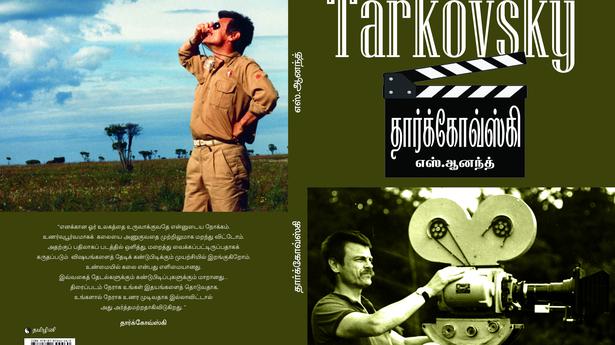
Books on Coimbatore’s history, cinema masters, and cinema essays released at the Coimbatore Book Festival
The Hindu
A round up of books on Coimbatore’s history, cinema masters, and a compilation of cinema essays released at the just-concluded Coimbatore Book Festival
‘A tribute to a great master’
S Anand
Film enthusiast, founder of Konangal Film Society, and author of six books on cinema masters inclding Masaki Kobayashi, Werner Herzog, Akira Kurosawa, Vittorio De Sica and the latest one on Andrei Tarkovsky
“This book is all about Tarkovsky’s take on cinema, how he conceives this art form and creates his cinema, and the aesthetics,” says Anand about his new book on Andrei Tarkovsky (1932-1986) published by Tamzhini. Tarkovsky, one of the greatest masters, made seven films. The first five were made in Russia. His first film Ivan’s Childhood (1962) was a great success and won the Golden Lion at Venice Film Festival. It was about a young boy Ivan, whose family gets killed in World War II. He becomes part of the Soviet army and ultimately dies in the hands of Germans. It is a strong anti-war film made without showing the war but leaves people devastated.
“His techniques and aesthetics are topics of discussion at gatherings on films even today,” adds Anand. Swedish master Ingmar Bergman, one of his contemporaries, is believed to have seen Tarkovsky’s second film Andrei Rublev (about a 14th century legendary icon painter who lived in Russia) more than 10 times. “Film masters including Robert Bresson, Antonionni, and Kurosawa respected his work,” says Anand and points out that Tarkovsky often challenged existing norms in film making to make films the way he conceived.
The book features some of the Tamil translations of Tarvosky’s interviews from his book Sculpting in Time. Anand says his fourth film Mirror, his most complicated and beautiful work, is almost like memoir of his own life. Listed as one of the greatest films of all time, it’s like a collage painting and the cinematography slips between colour, black-and-white, and sepia.
“In Russia, his films were revered as well as ridiculed as films made for intellectuals. But his films were well-received by the working class, proved by the success of Mirror. When one sees his seven films chronologically, one can understand how he moved towards becoming a minimalist. Visually, every single frame is a work of art. He made only seven films and died 36 years ago. But, here in one corner of the world, in Coimbatore, his films are remembered and discussed. This book is a tribute to the great master.”

We know birds, animals and insects constantly communicate with each other by making certain sounds. But when we think about plants, we do not ever think of them communicating. Charles Darwin, an eminent biologist, thought otherwise. Plants might appear the quiet, silent and solitary type of organisms but they have a complex way of communicating which is interesting and important for their survival.










